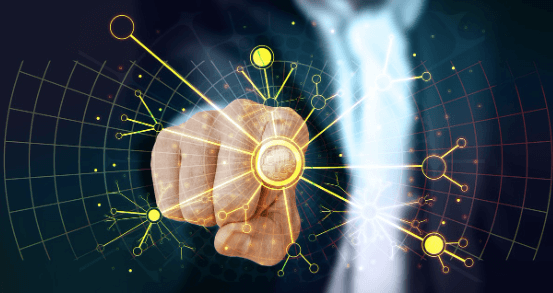Artificial Intelligence (AI) is no longer a concept confined to science fiction; it has become an integral part of our daily lives and numerous industries. AI, a branch of computer science focused on creating intelligent machines capable of mimicking human cognition and learning, has found applications across various domains. With this in mind, in this article The Hawker Online explores the diverse and transformative uses of artificial intelligence in today’s world.
Examples Of What Artificial Intelligence Is Used For
1. Healthcare
AI has revolutionized healthcare by enhancing patient care, diagnosis, and treatment:
- Medical Imaging: AI-powered algorithms can analyze medical images like X-rays, MRIs, and CT scans to detect diseases, tumors, or anomalies with high accuracy, aiding in early diagnosis.
- Drug Discovery: AI accelerates drug discovery by predicting potential drug candidates and simulating their effects, saving time and resources in the development process.
- Healthcare Chatbots: Chatbots and virtual assistants provide real-time healthcare information, schedule appointments, and assist patients with medical queries.
2. Finance
The financial sector benefits from AI’s ability to process vast datasets and make predictions:
- Algorithmic Trading: AI-driven algorithms analyze market trends and execute high-frequency trades, optimizing investment portfolios.
- Fraud Detection: AI detects unusual patterns in transactions, helping financial institutions identify and prevent fraudulent activities.
- Credit Scoring: Machine learning models assess credit risk more accurately by analyzing borrowers’ financial behavior and history.
3. Education
AI has the potential to revolutionize education:
- Personalized Learning: AI-powered educational platforms adapt content and pace to individual student needs, enhancing the learning experience.
- Virtual Tutors: Chatbots and virtual tutors provide students with instant help and support, answering questions and explaining concepts.
- Data Analysis: AI analyzes student performance data to identify areas needing improvement and suggests tailored interventions.
4. Manufacturing and Industry
AI-driven automation improves efficiency and quality in manufacturing:
- Predictive Maintenance: AI analyzes equipment data to predict maintenance needs, reducing downtime and increasing productivity.
- Quality Control: Computer vision systems inspect products for defects with high precision.
- Supply Chain Optimization: AI optimizes supply chain operations, minimizing costs and reducing delivery times.
5. Autonomous Vehicles
AI plays a pivotal role in the development of self-driving cars:
- Sensing and Navigation: AI-powered sensors and cameras enable vehicles to perceive and navigate their environment, making autonomous driving possible.
- Safety Systems: AI systems can detect potential accidents and take corrective actions faster than human drivers.
6. Natural Language Processing (NLP)
NLP enables machines to understand and interact with human language:
- Virtual Assistants: Voice-activated virtual assistants like Siri and Alexa respond to voice commands and perform tasks like setting reminders and answering questions.
- Translation Services: AI-driven translation tools can instantly translate text and speech between multiple languages.
7. E-commerce
AI enhances the online shopping experience:
- Recommendation Systems: AI analyzes user behavior and preferences to suggest personalized product recommendations.
- Customer Service Chatbots: Chatbots assist customers with inquiries, track orders, and provide real-time support.
8. Cybersecurity
AI strengthens cybersecurity measures:
- Threat Detection: AI algorithms identify and respond to cybersecurity threats in real-time, protecting sensitive data.
- User Authentication: Biometric AI systems, like facial recognition, enhance user authentication and security.
9. Entertainment
AI enhances content creation and entertainment experiences:
- Content Creation: AI generates content such as music, art, and literature autonomously.
- Gaming: AI improves video game experiences by creating realistic virtual worlds and enhancing non-player characters’ intelligence.
10. Environmental Conservation
AI contributes to environmental protection and sustainability:
- Climate Modeling: AI helps predict climate changes, enabling better preparation and mitigation efforts.
- Wildlife Conservation: AI assists in tracking and protecting endangered species by analyzing camera trap images and data.
The Bottom Line
Artificial Intelligence has permeated nearly every aspect of modern life, from healthcare and finance to education, manufacturing, and entertainment. Its ability to process vast amounts of data, make predictions, and adapt to changing circumstances continues to drive innovation across industries.
As AI technology advances, its applications are expected to expand further, creating new opportunities and challenges for society. Harnessing the potential of AI responsibly and ethically is an ongoing endeavor, one that will shape the future of human progress and innovation.


